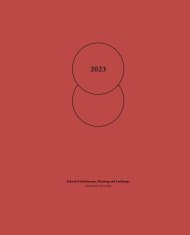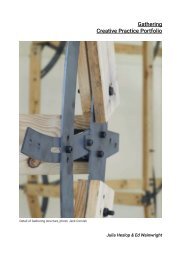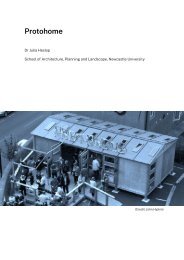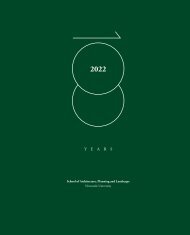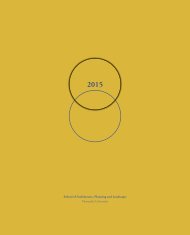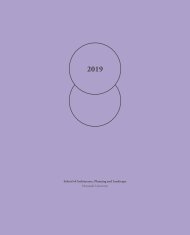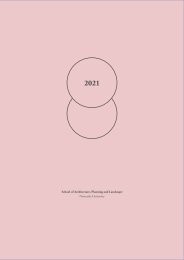Create successful ePaper yourself
Turn your PDF publications into a flip-book with our unique Google optimized e-Paper software.
Covid-19 and the Suspension of Austerity and Democracy
Emma Ormerod, Lecturer in Economic Geography, School of Geography, Politics
and Sociology, and Simin Davoudi, Professor of Environment and Planning and
Director of GURU, School of Architecture, Planning and Landscape at Newcastle
University
The global Covid-19 pandemic cancelled our faceto-face
session planned for April 2020 to discuss
‘governing under austerity’. Pausing to take stock
from the confines of our homes in lockdown, and
short of any empirical analyses at these early
stages, it is becoming clear that this unfolding
pandemic is having profound ramifications for
social and economic futures across the world. We
can see that what began as a singular public health
crisis has rapidly spiralled into a plurality of
interrelated social and economic crises, especially
in the context of a decade of austerity in the UK. At
the same time, the rising sense of solidarity and
community spirit has elevated the discourse of
change, leading to a re-evaluation of what people
value most and the way in which we value different
forms of labour. Previously undervalued and ill
paid key workers have found a voice and a
presence in the media and in our social
consciousness. Doctors, nurses, carers, teachers,
delivery drivers, bin collectors, and grocery shop
workers are putting their own lives on the line to
save the lives of others. To what extent does this
crisis offer a window of opportunity for society to
call for transformative changes to our economic,
social and environmental relations? Will we
bounce back to where we were, or break away
from an undesirable ‘normal’ (Davoudi, 2012)?
Crisis and the suspension of austerity
The pandemic has brought into sharp focus preexisting
social, economic, health and
environmental injustices which intersect around
class, gender and race. The consequences of a
longer-term political ideology which has pursued
economic competitiveness at all costs, and in the
last ten years, adopted severe austerity measures
with devastating effects on the most vulnerable in
society are being laid bare under the pandemic.
Austerity, as an ideologically driven policy choice
to reduce the role of the state in supporting
people (under the notion that it reduces ones’
ability to be independent), has been shrouded in a
sense of nostalgia, which evokes times of war and
hardship in order to rally people towards a
common goal. However, in bringing the
governments’ deficit down, the sacrifice has not
been even across people and places (Davoudi, et
al., in press). Austerity has disproportionally
18
impacted the most vulnerable: children, disabled
people, women, and lower paid families, with a
distinct geography which discriminated against
the ‘left behind’ or ‘kept behind’ cities and regions
such as the North East which are more heavily
reliant on shrinking public sector jobs. A decade of
austerity measures and deepening privatisation of
the welfare state have led to steeply rising levels of
homelessness, children in poverty, reliance on
food banks, and growing income and wealth
inequalities.
Yet the Covid-19 pandemic has seen the
Conservative government effectively suspend
austerity and ‘do what it takes’ to bail out millions
of people from losing their jobs and companies
from collapse. The newly appointed Chancellor of
the Exchequer, Rishi Sunak, has effectively
propped up the country through various schemes
including employment retention, mortgage
breaks, increases in statutory sick pay, and a large
and growing financial package of support for
families and businesses. These will undoubtedly
help to ease the current situation, but they will not
reverse the consequences of a decade of austerity,
especially in the face of a further economic
recession. Indeed, there are already some
suggestions from the government that financial
rescue package and its associated borrowing will
have to be paid back through increased tax and
potentially a new, and deeper round of austerity
measures. Caution is therefore required in
reporting ‘the death of austerity’.
This view on the Tyne is so close to my house, yet I had never seen it until
COVID-19 lockdown happened and I started doing daily walks in my
neighbourhood. Walking a lot has helped me cope with the weirdness and
stress of the current situation, and this view the Tyne is just so beautiful,
and different every day! I have taken this same picture so often, and now
have a quite collection of skies. Photos: Loes Veldpaus



